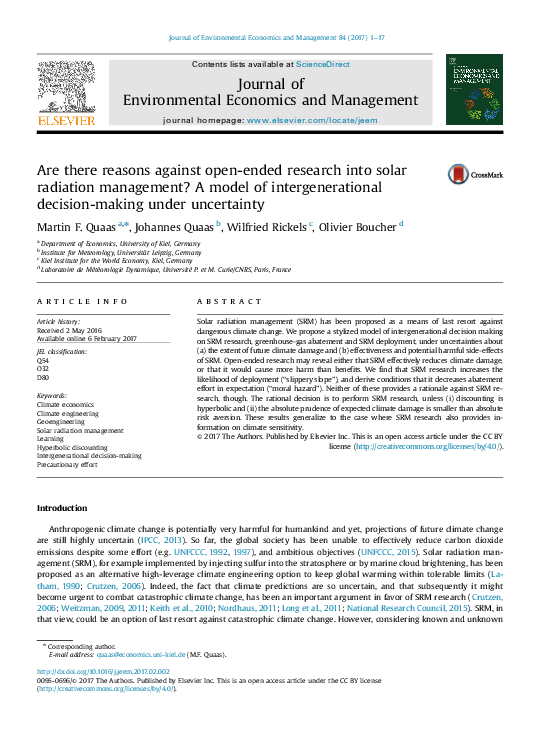Journal Article
Are there reasons against open-ended research into solar radiation management? A model of intergenerational decision-making under uncertainty.
Authors
Publication Date
DOI
JEL Classification
Key Words
Related Topics
Climate
Solar radiation management (SRM) has been proposed as a means of last resort against dangerous climate change. We propose a stylized model of intergenerational decision making on SRM research, greenhouse-gas abatement and SRM deployment, under uncertainties about (a) the extent of future climate damage and (b) effectiveness and potential harmful side-effects of SRM. Open-ended research may reveal either that SRM effectively reduces climate damage, or that it would cause more harm than benefits. We find that SRM research increases the likelihood of deployment (“slippery slope”), and derive conditions that it decreases abatement effort in expectation (“moral hazard”). Neither of these provides a rationale against SRM research, though. The rational decision is to perform SRM research, unless (i) discounting is hyperbolic and (ii) the absolute prudence of expected climate damage is smaller than absolute risk aversion. These results generalize to the case where SRM research also provides information on climate sensitivity.






